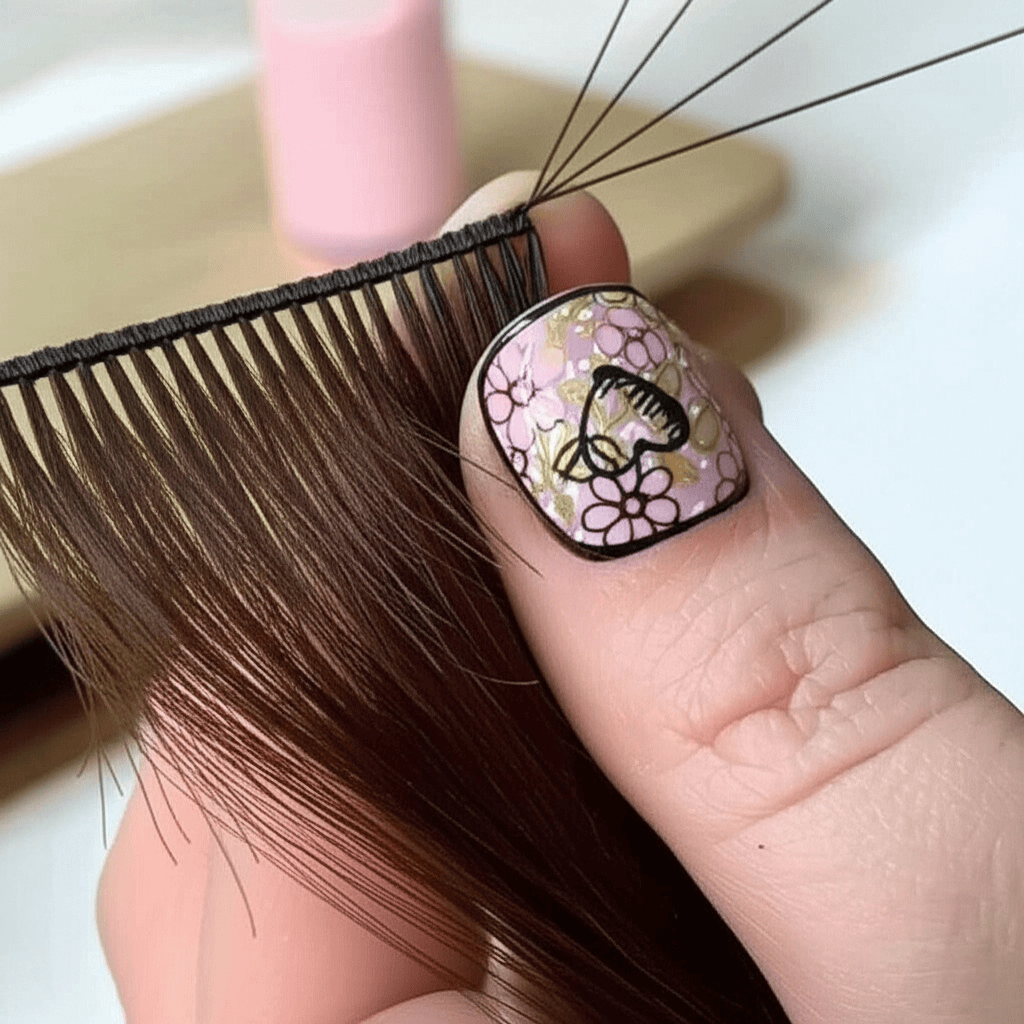Safeguarding Quality: How Hair Extension Suppliers Navigate US Regulations
The hair extension industry, while full of creativity and beauty, is also entwined in a labyrinth of regulations and standards, especially when catering to the US market. As a supplier deeply embedded in this sector, I hold a strong opinion: Hair extension suppliers ensure US regulatory compliance by conducting ethical sourcing1, maintaining transparent supply chains2, and obtaining certifications like ISO or Fair Trade. We implement strict quality control3 with stress and durability testing, adhere to labor laws, consult legal experts, and comply with import/export duties4, sales tax, consumer protection laws5, and product liability6 regulations. Documenting all practices and seeking continuous legal counsel7 become indispensable to stay informed about industry developments.
These elements are critical to not only complying with laws but also overcoming the challenges posed by the evergreen ambiguity surrounding standards in hair extensions. Let's explore what these regulations entail, the standards the industry follows, and how suppliers like us maintain compliance while nurturing ethical values.
What are the rules for hair extensions?
Dive Deeper: Demystifying Regulatory Challenges
Hair extension suppliers entering the US market must navigate a myriad of regulatory hurdles. It starts with understanding the Federal Trade Commission (FTC) requirements for fair business practices and accurately labeling products. This extends into Consumer Product Safety Commission (CPSC) guidelines which ensure that all products—including hair extensions—do not pose any safety risks.
Key Regulatory Areas Include:
- Import/Export Duties: Navigating custom duties can seem overwhelming, but understanding Harmonized Tariff Schedule codes is essential to avoid hefty fines.
- Sales Tax Compliance: With hair extensions being a tangible product, understanding the sales tax implications across different states is crucial.
- Product Liability: Suppliers must ensure products meet established safety standards, or risk hefty liability suits, which necessitates insurance.
What is the gold standard for hair extensions?
Dive Deeper: Sourcing and Sustaining Quality
The gold standard in hair extensions is not just a figment of marketing campaigns; it’s a tangible quality that consumers experience. Ethical sourcing is paramount. Utilizing Virgin Hair, as we do at Plucharm Hair, which is unprocessed and comes from a single donor, ensures uniformity and natural appeal—a principle reflected in our core value of honesty.
Gold Standard Elements:
- ISO Certification8: Ensuring product consistency through recognized international standards.
- Fair Trade Practices9: Guaranteeing that the sourced hair is obtained via ethically and socially responsible means.
- Quality Control Protocols: Plucharm's comprehensive Plucharm Standard emphasizes stress and durability tests, ensuring every strand excels in longevity and quality.
Do you have to have a license to do hair extensions?
Dive Deeper: The Legalities of Hair Extension Application
While sourcing and manufacturing entail significant regulatory processes, the application of hair extensions also dances to legal tunes. In most US states, applying hair extensions is a cosmetology practice10 requiring appropriate licensure. This ensures practitioners adhere to health and hygiene standards, important in protecting consumer safety and maintaining industry reputation.
Licensure Essentials:
- State-by-State Licensing Rules: Requirements often differ significantly across state lines.
- Ongoing Education: Stylists must be apprised of the latest techniques and safety practices, sometimes involving continued education mandates.
For salon owners like Aisha, our target audience, this translates to ensuring that her staff is not only trained but also compliant with state-specific cosmetology licenses. This adherence guards against potential legal pitfalls while demonstrating professionalism to discerning clientele who judge on expertise.
What do ethically sourced hair extensions mean?
Dive Deeper: Understanding the Ethos Behind Sourcing
Ethical sourcing in hair extensions involves more than ensuring origin transparency; it’s about sustainable relationships with source communities and enhancing the welfare of those involved in the supply chain. At Plucharm Hair, we've always prioritized sourcing where donor consent is verified and suppliers offer fair compensation for their products.
Ethical Standards Include:
- Transparent Supply Chains: Maintaining traceability from origin to product shelf, minimizing ethical ambiguities.
- Eco-friendly Practices: Engaging in practices that seek to reduce environmental footprint.
Conclusion: Upholding Quality Through Compliance
At the core, hair extension suppliers navigate a complex web of regulations and standards, merging legality with ethics to deliver reliable, quality products. By focusing on ethical sourcing1, transparent supply chains2, stringent quality control3s, and robust certification, we don’t just adhere to regulations; we elevate the industry standard, reflecting Plucharm Hair's commitment to honesty, excellence, and shared success.
As salon owners and suppliers work hand-in-hand to explore and navigate these ever-evolving regulations, it's this synergy that promises continued growth and refinement in the hair extension market, ultimately leading to a community that prizes innovation and sustainable beauty.
Regulation isn't merely a set of rules to follow; it's an opportunity—a platform for establishing trust and excellence, transforming every regulatory step into a stride toward a better, more sustainable future for both businesses and satisfied, confident clients.
-
Understanding ethical sourcing can enhance your brand's reputation and consumer trust. ↩ ↩
-
Transparency builds consumer trust and can differentiate your brand in a competitive market. ↩ ↩
-
Implementing effective quality control can significantly reduce product returns and enhance customer loyalty. ↩ ↩
-
Navigating import/export duties is crucial for cost management and compliance in the hair extension market. ↩
-
Understanding consumer protection laws is essential for maintaining compliance and customer trust. ↩
-
Knowing about product liability helps suppliers mitigate risks and protect their business. ↩
-
Regular legal counsel can help navigate complex regulations and avoid potential pitfalls. ↩
-
ISO Certification ensures product quality and consistency, vital for maintaining customer satisfaction. ↩
-
Exploring Fair Trade can help you understand the ethical implications of sourcing hair extensions. ↩
-
Staying informed about licensing can ensure compliance and enhance your salon's credibility. ↩




